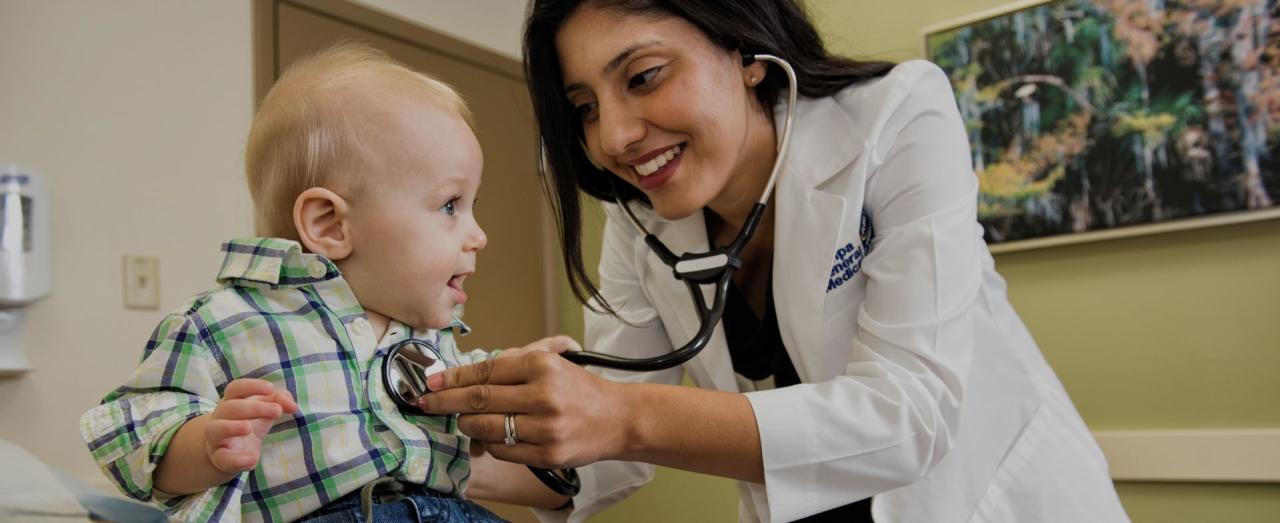Primary care physicians play a crucial role in ensuring the well-being of families by providing comprehensive and personalized care. This article delves into the significance of having a primary care physician for family healthcare and explores the various aspects of their services and qualifications.
 Primary care physicians play a crucial role in providing comprehensive healthcare to families. To effectively serve in this capacity, these physicians must possess a specific set of qualifications and skills.
Primary care physicians play a crucial role in providing comprehensive healthcare to families. To effectively serve in this capacity, these physicians must possess a specific set of qualifications and skills.
 Building a strong and lasting relationship with your primary care physician is crucial for the overall health and well-being of your family. Continuity of care with a primary care physician ensures that your family's medical needs are consistently met and that you receive personalized and comprehensive healthcare services.
Building a strong and lasting relationship with your primary care physician is crucial for the overall health and well-being of your family. Continuity of care with a primary care physician ensures that your family's medical needs are consistently met and that you receive personalized and comprehensive healthcare services.
Importance of Primary Care Physicians in Family Healthcare
Primary care physicians play a crucial role in providing comprehensive and continuous care for families. They serve as the first point of contact for individuals of all ages, offering a wide range of medical services to address various health needs within the family unit.Benefits of Having a Primary Care Physician for Family Healthcare
- Establishing a Long-Term Relationship: Primary care physicians develop a deep understanding of each family member's medical history, preferences, and unique healthcare needs, allowing for personalized and effective care.
- Coordination of Care: By overseeing all aspects of a family's healthcare, primary care physicians ensure that treatments and interventions are well-coordinated and aligned with each individual's health goals.
- Preventive Care: Primary care physicians focus on preventive measures such as immunizations, screenings, and lifestyle counseling to promote wellness and detect potential health issues early on.
- Management of Chronic Conditions: For families dealing with chronic illnesses, primary care physicians provide ongoing support, monitoring, and treatment to help manage these conditions and improve quality of life.
Qualifications and Skills of Primary Care Physicians
 Primary care physicians play a crucial role in providing comprehensive healthcare to families. To effectively serve in this capacity, these physicians must possess a specific set of qualifications and skills.
Primary care physicians play a crucial role in providing comprehensive healthcare to families. To effectively serve in this capacity, these physicians must possess a specific set of qualifications and skills.
Educational Background
Primary care physicians typically complete a Bachelor's degree followed by four years of medical school. After obtaining a medical degree, they must complete a residency program in family medicine, internal medicine, or pediatrics. This training equips them with the necessary knowledge and skills to diagnose and treat a wide range of health conditions prevalent in family healthcare settings.Essential Skills
Strong Communication Skills Primary care physicians must be able to effectively communicate with patients of all ages and backgrounds to understand their symptoms and concerns. Diagnostic Skills They should have strong diagnostic abilities to identify health issues accurately and develop appropriate treatment plans. Empathy and Compassion Compassion is essential in building trust with patients and providing emotional support during challenging times. Preventive Care Knowledge Knowledge of preventive care measures is crucial for promoting overall health and wellness within families.Training Comparison with Specialists
While specialists focus on a specific area of medicine, primary care physicians receive broad training that encompasses various medical disciplines. This training allows them to address a wide array of health concerns that may arise within a family unit. Specialists, on the other hand, undergo in-depth training in a particular medical field, enabling them to provide specialized care for specific conditions or diseases. In family healthcare, primary care physicians act as the first point of contact for patients, coordinating their care and referring them to specialists when needed. This collaborative approach ensures that families receive comprehensive and coordinated healthcare services.Services Offered by Primary Care Physicians for Families
Primary care physicians play a crucial role in providing comprehensive healthcare services to families. They offer a wide range of services that cater to the diverse needs of family members, ensuring continuity of care and promoting overall well-being.Common Services Provided:
- Preventive care, including immunizations, screenings, and health assessments.
- Management of chronic conditions such as diabetes, hypertension, and asthma.
- Acute care for minor illnesses and injuries.
- Health education and counseling on lifestyle modifications and disease prevention.
- Referrals to specialists for further evaluation and treatment when needed.
Coordination of Care:
Primary care physicians serve as the central point of contact for coordinating healthcare services for all family members. They ensure that each individual receives appropriate care tailored to their unique needs, and facilitate communication between different healthcare providers to optimize treatment outcomes.Addressing Unique Healthcare Needs:
Primary care physicians take a holistic approach to address the unique healthcare needs of families. They consider factors such as family history, genetic predispositions, social determinants of health, and environmental influences when developing personalized care plans. By understanding the dynamics of family relationships and dynamics, they can provide comprehensive and compassionate care to promote the health and well-being of the entire family unit.Establishing Long-Term Relationships with Primary Care Physicians
 Building a strong and lasting relationship with your primary care physician is crucial for the overall health and well-being of your family. Continuity of care with a primary care physician ensures that your family's medical needs are consistently met and that you receive personalized and comprehensive healthcare services.
Building a strong and lasting relationship with your primary care physician is crucial for the overall health and well-being of your family. Continuity of care with a primary care physician ensures that your family's medical needs are consistently met and that you receive personalized and comprehensive healthcare services.
Tips for Building a Strong Relationship with Your Primary Care Physician
- Be open and honest: Communication is key in any relationship, including the one with your primary care physician. Be open about your medical history, symptoms, and concerns to allow for accurate diagnosis and treatment.
- Attend regular check-ups: Schedule routine visits with your primary care physician even when you are not sick. This helps in building rapport and allows your physician to monitor your health proactively.
- Follow medical advice: Adhering to the treatment plans and recommendations provided by your primary care physician demonstrates your commitment to your health and strengthens the trust in your relationship.
- Ask questions: Don't hesitate to ask questions or seek clarification on any aspect of your healthcare. Understanding your condition and treatment options empowers you to make informed decisions.
Benefits of Having a Primary Care Physician Familiar with Your Family
- Personalized care: A primary care physician who knows your family's medical history and preferences can tailor treatment plans to suit your unique needs and lifestyle.
- Preventive care: With a comprehensive understanding of your family's health background, your primary care physician can recommend preventive measures to minimize the risk of developing certain conditions.
- Coordination of care: Having a primary care physician as a central point of contact ensures seamless coordination between specialists, hospitals, and other healthcare providers, leading to better overall outcomes.















